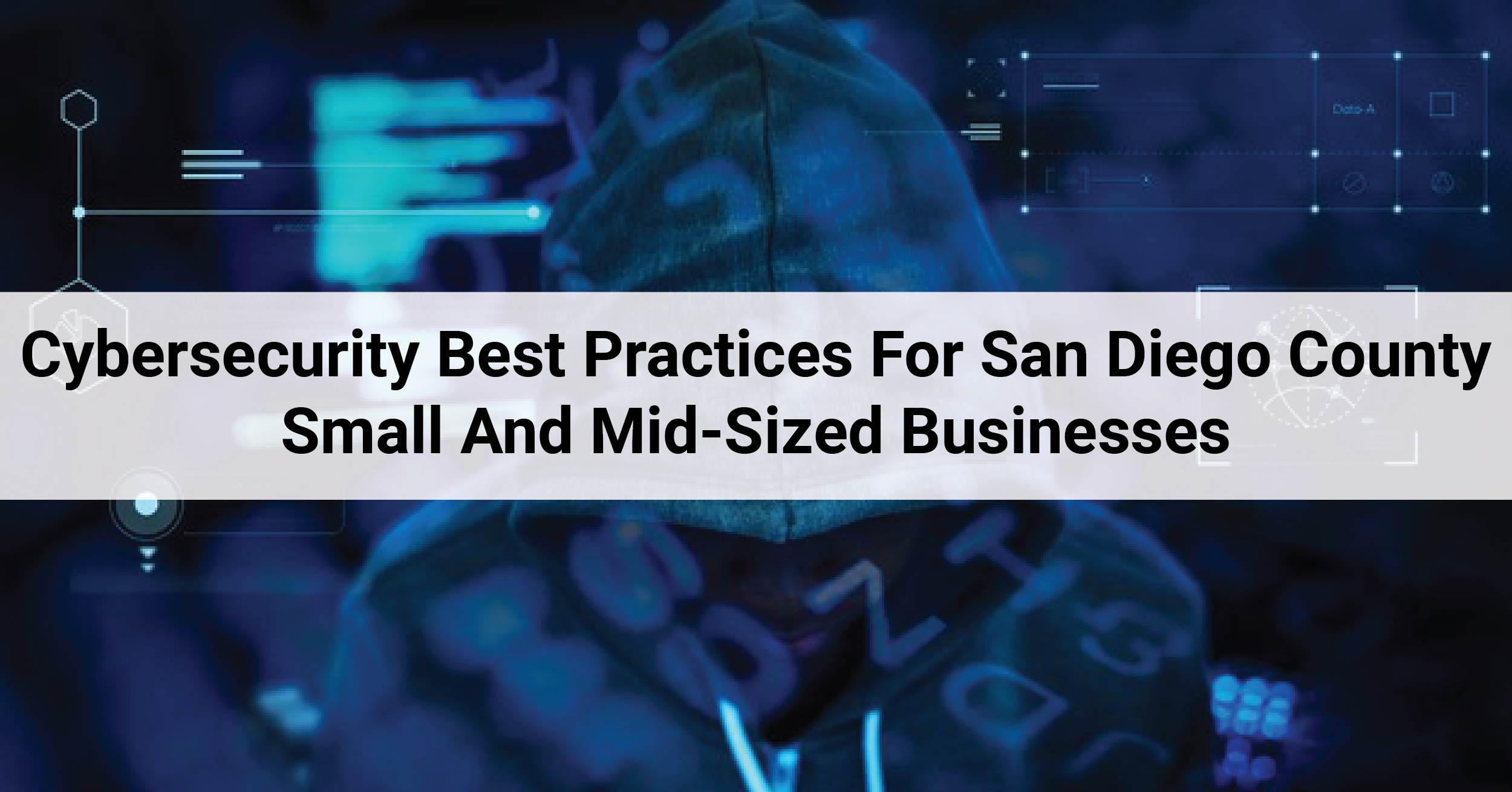Cybercrime is a global problem that poses threats to international organizations and even bigger threats to small and mid-sized businesses (SMBs).
However, it could be tempting to think of being a small or medium-sized business (SMBs) in San Diego County does exempt your company from the same cyber threats as big enterprises.
SMBs are even more of a target because they don’t necessarily have the dedicated IT security services and bit-time resources to fight against cyber-crimes.
There’s no silver bullet to the many dangers that affect SMBs! Therefore, Cyber Security in San Diego County for most small and mid-size businesses should be taken seriously now than ever.
Businesses face security risks daily without leaving out small and mid-sized businesses (SMBs), which is why we must fine-tune every security solution, IT security services, focusing not only on physical security but also on cybersecurity that takes care of organizational servers, networks, and online data.
Even if you think that your company’s office space is protected using the needed physical security, how about your company’s online intellectual properties?
We should know that today’s organized cybercrimes far out shadow the past threats, and the ever-evolving threat now requires smarter Cybersecurity solutions dedicated to identifying and blocking these conceivable cyber threats. The more reason why SMBs in San Diego County should follow Cybersecurity practices.
Why is Cybersecurity practice important in mitigating cyber threats, especially for SMBs?
It is common knowledge that small businesses are often run on minimal startup capital or resources and, as such, do not prioritize security measures as bigger companies do.
However, we can’t overlook the fact that good Cybersecurity practices have helped businesses worldwide improve their cyber posture and reduce their reputation risks associated with sensitive data disclosure.
Therefore, Cyber Security practices in San Diego County for SMBs are an effective solution in preventing the city’s small scale enterprises from becoming the next victim of cyber-attack.
With the best IT security services deployed, small and mid-size businesses can now provide digital protection that will ensure that their employees aren't at risk from potential cyber threats with a good implementation of effective security measures and IT security services.
However, with the recent economic impact of COVID-19, it could be cost-intensive to separate a budget for such needed cybersecurity solutions. Nevertheless, it is crucial to learn and invest in Cybersecurity solutions because the novel coronavirus has made our employees and businesses more exposed in terms of cyber-attacks.
The stakes are very high. So how can you protect your business? Here are a few suggestions:
- Set Cyber Security Policies: Educate and train your employees on what are good cybersecurity policies, such as proper device and email security, effective password management, anti-malware programs to use, and how often to do a full malware scan, and the type of scams employees should look out for.
- Backup Data Regularly: Having a reliable backup solution enables your company to restore data if it gets infected or lost. From important documents to financial files to databases, you should always routinely backup those data files.
- Use MFA (Multi-Factor Authentication): Even if all of your employees use the most complicated passwords known to man, adding an extra layer of precaution by implementing two-factor authentications for server access known as multi-factor authentication. This would serve as an essential defense line when someone's device or credentials get lost or stolen.
- Build Up a Firewall: A properly configured firewall will prevent unwanted outsiders from accessing your network. If your employees work from home, provide them with the proper firewall software for their home network for compliance purposes.
In addition to deploying proven, cost-effective IT services on the front end, SMBs can put these best practices in play to further strengthen their security posture during the COVID-19 crisis:
- Protecting networks and data from unauthorized access and conducting an online security risk assessment.
- Secure data lifestyle, cloud automation, and analytics.
- Improve your business continuity, along with data security.
- By using robust encryption tools, you can avoid the pitfalls of phishing scams and malware threats.
- A quick defense against any risks to the business IT or company productivity and an increased faster response times in the event of a breach.
- Cybersecurity awareness involves the training of employees to take an active role in recognizing and avoiding security threats.
These cybersecurity best practices are phenomenal processes directly related to building a holistic security structure in an organization.


